The Ford-Mazda Fandango
Since Ford said sayonara to its stake in Mazda, the erstwhile allies have been been having a lot of those “relationship talks,” reports The Detroit News. And true to the cliches, it’s a case of “can’t live with you, can’t live without you.” Crack a beer if you’ve been there before. Anyway, therap, I mean, analyst Jim Hall of 2953 Analytics sat down with the two to get a feel for the situation. “They’ve had a very symbiotic relationship,” he tells DetN. “The risk for Ford is they lose Mazda’s small car expertise. They think they can make it up with Europe, but Mazda can do it cheaper. The biggest risk to Mazda is their ability to get components on a global basis is reduced because their volumes are so low.” Ford goes around insisting that their “close, collaborative relationship will not change.” Meanwhile Mazda tells the Japanese papers that the partnership will be “fundamentally altered.” But despite its tough talk, Mazda might need Ford’s help to expand in China, where it’s looking at a 30 percent sales bump in 08. “The thing that Ford gives Mazda, historically, is capital — and that keeps the Japanese banks off its back,” empathizes Hall. “Now, the banks are a major shareholder.” Ford and Mazda still hold monthly meetings, and US executives say Mazda’s need for engines, successful JV plants, and mutual respect will keep them together. But will Mazda’s start-stop technology be shared with Ford? And for that matter will Mazda’s “own” DSG box be a dry-clutch like the forthcoming Ford Powershift? If two cannibals share a lifeboat, which one survives? So many questions. And based on how things usually go in relationships like these, the crazy kids probably don’t know yet themselves.
More by Edward Niedermeyer
Latest Car Reviews
Read moreLatest Product Reviews
Read moreRecent Comments
- Slavuta Motor Trend"Although the interior appears more upscale, sit in it a while and you notice the grainy plastics and conventional design. The doors sound tinny, the small strip of buttons in the center stack flexes, and the rear seats are on the firm side (but we dig the ability to recline). Most frustrating were the repeated Apple CarPlay glitches that seemed to slow down the apps running through it."
- Brandon I would vote for my 23 Escape ST-Line with the 2.0L turbo and a normal 8 speed transmission instead of CVT. 250 HP, I average 28 MPG and get much higher on trips and get a nice 13" sync4 touchscreen. It leaves these 2 in my dust literally
- JLGOLDEN When this and Hornet were revealed, I expected BOTH to quickly become best-sellers for their brands. They look great, and seem like interesting and fun alternatives in a crowded market. Alas, ambitious pricing is a bridge too far...
- Zerofoo Modifications are funny things. I like the smoked side marker look - however having seen too many cars with butchered wire harnesses, I don't buy cars with ANY modifications. Pro-tip - put the car back to stock before you try and sell it.
- JLGOLDEN I disagree with the author's comment on the current Murano's "annoying CVT". Murano's CVT does not fake shifts like some CVTs attempt, therefore does not cause shift shock or driveline harshness while fumbling between set ratios. Murano's CVT feels genuinely smooth and lets the (great-sounding V6) engine sing and zing along pleasantly.



















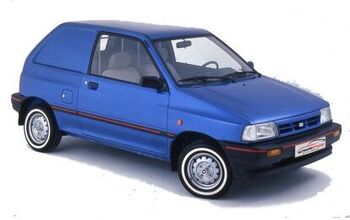
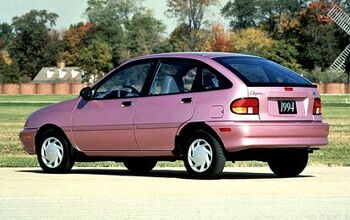
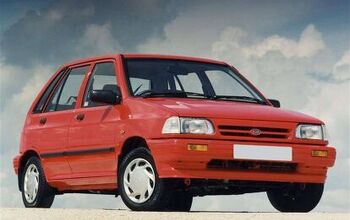
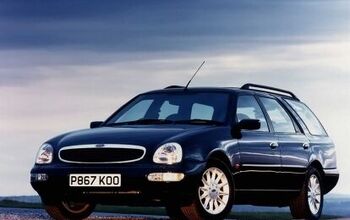
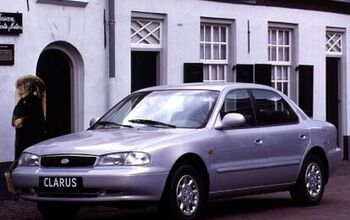










Comments
Join the conversation
no_slushbox: I appreciate that the Wankel is a niche offering, and you either like it or you don't. Hopefully I don't come off as a raving fan-boy, but I try to at least give the technology a fair case. While I admit the fuel economy is not a strong-point of the rotary, this thread was enough to make me curious. According to the 2008 EPA numbers (take that for what it's worth): RX-8 Combined cycle is 20MPG MazdaSpeed3 on Combined cycle is 22MPG RX8 is a RWD driveline (usually a little less efficient) but the Speed3 does have 20-30 more HP and a lot more torque. So, while the Turbo 2.3 would be an improvement, I hardly think it would be a swap-justifying improvement. As for the reliability, unfortunately the early experiments, and then the later Turbo 3rd Gens have greatly hurt the reputation. There are scores of 1st and 2nd Gen non-turbo RX7s running around with hundreds of thousands of miles on them. Non-turbo rotaries have actually proven very reliable. Yes, the early RX8s do have a problem, thus the recall and extended warranty. It's not unique in the industry, it's a known issue that has been addressed, and only impacted a minority of cars. Kind of like E46 M3 rod bearing failures before the re-design. It doesn't seem as bad as Porsche IMS failures, Toyota oil sludge, Dodge oil sludge etc. For those that care (others can look away now), the operating theory on the issue is very TTAC-esque. Early engine failures were highest in North America. Ford/Mazda specify 5W20 oil in North America, but 5W30 (or heavier) everywhere else in the world. Why? The lighter oil has a fractional improvement on CAFE. Combine that with an ECU tune that favored emissions (not injecting enough oil, and runs the car rich in order to keep the Catalytic converters cool) and you have a recipe for dry apex seals, and oil-starved bearings. Reflash to the newer ECU tune that injects more oil (and as many do, move to a heavier weight oil) and your engine should last for a long time, especially if you take it to redline at least once a day. (And who wouldn't want to?) The majority of failures seem to be in US south, amongst automatic cars (A lot more autos sold in the US than anywhere else). The heat down south put extra stress on the light weight oil. The ECU injected oil based on RPM, and injects very little at low RPM. The automatics have a lower redline, and tend to spend more time at lower RPMs. These issues have now largely been discovered, addressed, and fixed. Thus the reason Mazda has extended the warranty. I believe this site has been a big supporter of, "If you want us to believe it's better, back it with a warranty." Well, Mazda has. As a rule, rotaries live longer the more often they are revved (assuming proper maintenance, of course.) Unless I'm mistaken, TrueDelta has actually shown pretty decent reliability for the RX8. Wow... I kind of did end up sounding like a racing rotary fan-boy... sorry about that. Must be getting the itch.. just 4 more months until I get my bridge-ported 2nd Gen back on the track again...